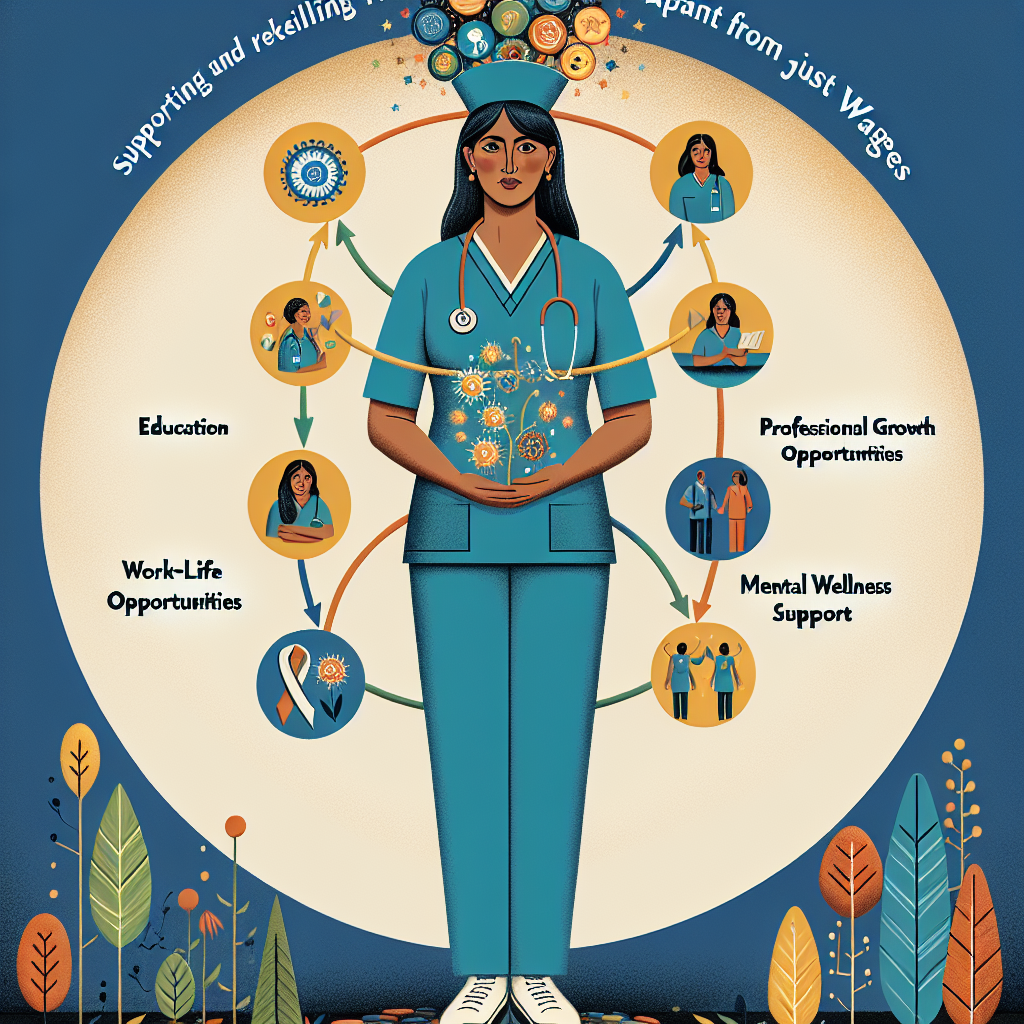New York, NY—In an industry grappling with high turnover rates and chronic staffing shortages, nursing homes and skilled nursing facilities are beginning to recognize that competitive wages alone are insufficient to attract and retain the skilled talent they desperately need. Leaders in healthcare are now exploring comprehensive support systems aimed at not only incentivizing nursing professionals to stay but also ensuring their long-term satisfaction and engagement in their roles.
With nearly 33% of nurses considering leaving their position, with many citing burnout and job dissatisfaction as the primary reasons, according to a recent survey by the National Healthcare Retention & RN Staffing Report, the challenge has never been more pressing. As a response, innovative support strategies beyond traditional compensation are emerging as key factors in retention efforts within the skilled nursing sector.
“Compensation is critical, but it’s the holistic support that makes the difference,” shared Jane Doe, a nursing manager with over two decades of experience in the field. “Skilled nursing facilities that prioritize comprehensive professional development, mental health resources, flexible scheduling, and a supportive work culture are seeing significant improvements in staff retention.”
These strategies reflect a deeper understanding of the day-to-day realities and challenges faced by nursing professionals. For instance, flexible scheduling options can alleviate some of the stress associated with balancing personal life and demanding shift patterns, which is a common issue within the sector. Similarly, investing in continuous professional development not only aids in career progression but also helps in keeping the nursing workforce engaged and updated with the latest in healthcare practices.
Moreover, the introduction of mental health support and wellness programs acknowledges the emotional toll and burnout risks associated with nursing roles, especially in high-pressure environments like skilled nursing facilities. Such programs can range from in-house counseling services to stress management workshops and provide a much-needed safety net for employees.
Facilities that have prioritized these holistic approaches report not only higher retention rates but also a more positive organizational culture, which in turn attracts more talent. “It’s about creating an environment where employees feel valued, supported, and part of a greater mission,” Doe added. “That’s what ultimately fosters loyalty and long-term commitment.”
As the demand for skilled nursing care continues to rise with an aging population, the sector’s ability to retain its workforce through comprehensive support mechanisms will be critical. Beyond Wages represents a shift in mindset from viewing staff simply as resources to recognizing them as valued members of the healthcare community, whose well-being is integral to the overall quality of care provided to patients. This approach might just be the key to unlocking a more stable, satisfied, and dedicated nursing workforce for the future.


